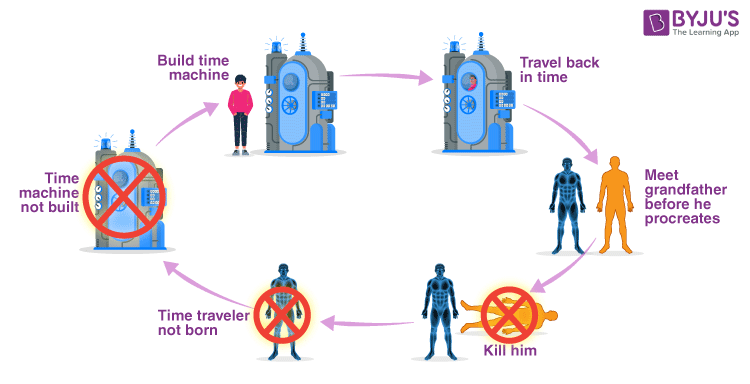Down The Rabbit Hole
The grandfather paradox is a famous thought experiment that explores the consequences of time travel. The paradox poses the question: “If you could go back in time and kill your grandfather before he had children, would you still exist?”
The paradox arises from the idea that if you prevented your grandfather from having children, then you would never have been born to go back in time to kill him. This creates a logical contradiction, as your existence both depends on and contradicts the premise of time travel.
 Diagram that shows the paradox
Diagram that shows the paradox
The grandfather paradox is often used to illustrate the complexities and potential pitfalls of time travel. It suggests that any attempt to change the past could result in unpredictable and potentially disastrous consequences for the present and future.
However, the paradox has also led to many interesting and creative interpretations and solutions. Some scientists and philosophers have proposed that time travel could be possible if it exists in a parallel universe or if the act of traveling through time creates a new timeline that diverges from the original.
Others have argued that the paradox itself may be flawed, as it assumes a linear and deterministic view of time that may not reflect the true nature of the universe. The paradox raises many intriguing questions about the nature of time and the possibilities and limitations of human understanding.
In conclusion, the grandfather paradox is a fascinating thought experiment that challenges our assumptions and beliefs about time and causality. While it may never be possible to travel back in time and test the paradox, it continues to inspire and intrigue scientists, philosophers, and writers alike.